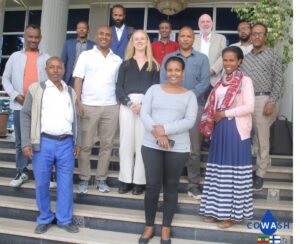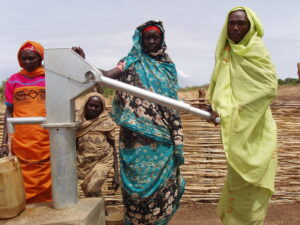The COWASH IV project is making significant progress in improving water, sanitation and hygiene (WASH) services in rural Ethiopia. Among the eight regions where the project is working, Benishangul Gumuz and Tigray have been part of the project since its early phases.
 COWASH began operating in Tigray during its first phase in 2011 initially covering the then Ofla and Enda Mokoni Woredas. By its third phase, the project had expanded to seven Woredas. In the post-conflict period, COWASH IV was the first project to bring WASH finance to the region. Following the peace agreement in Tigray, the signing of a Memorandum of Understanding between the Ministry of Finance and the Tigray Bureau of Finance on 02 June 2023 enabled the project to commence work in the region. Recognizing the need for post-conflict recovery, the project focused on rehabilitation and capacity building across the 12 project Woredas now covered.
COWASH began operating in Tigray during its first phase in 2011 initially covering the then Ofla and Enda Mokoni Woredas. By its third phase, the project had expanded to seven Woredas. In the post-conflict period, COWASH IV was the first project to bring WASH finance to the region. Following the peace agreement in Tigray, the signing of a Memorandum of Understanding between the Ministry of Finance and the Tigray Bureau of Finance on 02 June 2023 enabled the project to commence work in the region. Recognizing the need for post-conflict recovery, the project focused on rehabilitation and capacity building across the 12 project Woredas now covered.

In Benishangul Gumuz, COWASH began work during its Second Phase in 2013, initially covering four woredas. Within a year, the project expanded to include five additional woredas, bringing the total to nine. Currently, COWASH IV operates in four woredas of the region: Bambasi, Oda Bildigilu, Undulu, and Pawe.
Since its launch in these two regions, COWASH IV has facilitated the rehabilitation of 243 community water points, benefiting around 68,346 people. In addition, the project constructed and rehabilitated water points in 24 school and in 6 health facilities. The Project also constructed a school menstrual hygiene management center in Tigray. Aiming to promote sustainable WASH practices, the project has delivered capacity-building training to around 6,148 people in both regions.
By addressing critical WASH needs, COWASH IV is not only improving public health but also empowering communities and fostering sustainable development in rural Ethiopia.